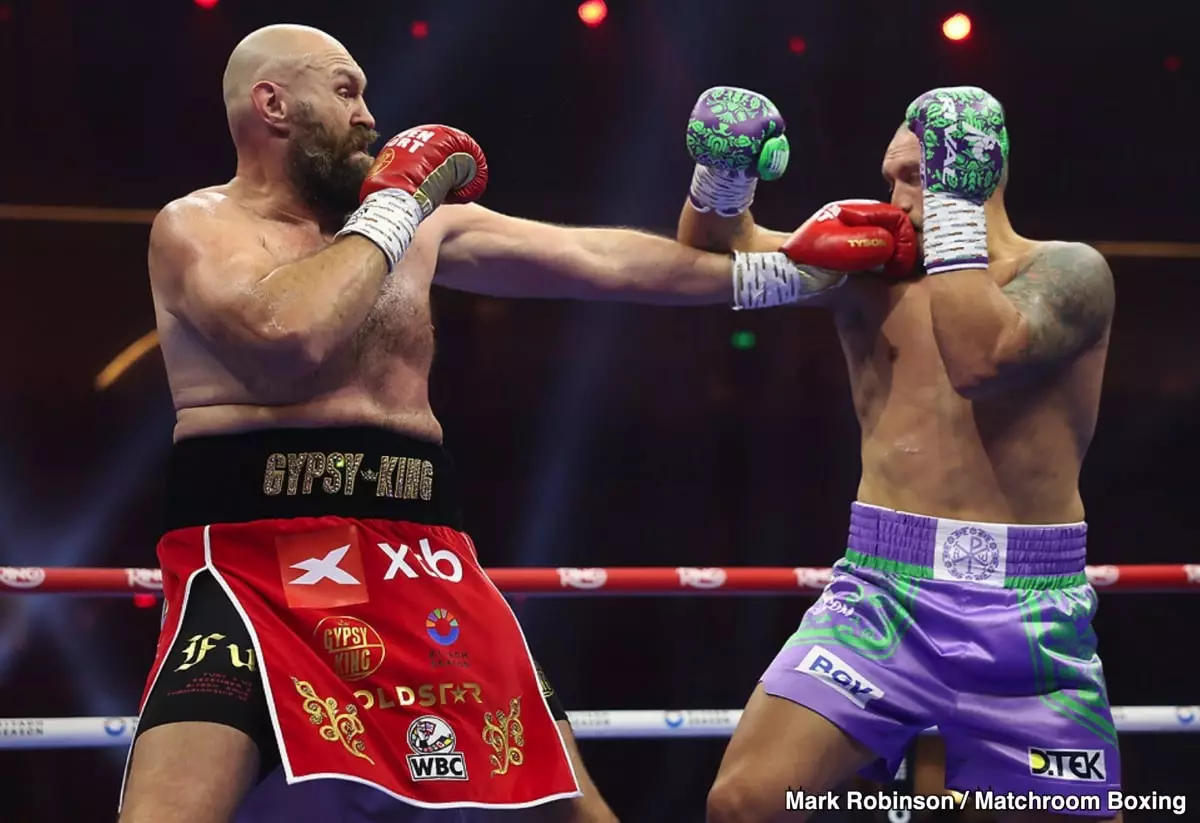Tyson Fury is a name that has resonated throughout the boxing world, especially over the past decade. His career, filled with dramatic wins and some contentious defeats, has earned him a place in pop culture beyond the square ring. However, as his recent loss to Oleksandr Usyk has sparked discussions about his future, one voice calls for logic and restraint—Teddy Atlas, a former trainer who believes it may be time for Fury to hang up his gloves for good. In this article, we explore the nuances of Atlas’s commentary, considering the broader implications of Fury’s career trajectory, the mythos surrounding his legacy, and the realities of a fighter’s longevity.
Teddy Atlas emphasizes the toll that years of competition have taken on Fury. With a career record of 34 wins, 2 losses, and 1 draw, Fury’s track record appears respectable at first glance. Yet the battles within the ring have invariably left a mark. Atlas points to the grueling trilogy against Deontay Wilder and significant bouts against quality opponents, highlighting how these fights extract not just physical endurance but also mental acuity. Atlas asserts that retirement now would allow Fury to exit while he’s still capable, rather than risk becoming a shell of his former self through continued competition.
Atlas’s argument sheds light on a broader conversation regarding the nature of athleticism and the transient thrill of victory. Athletes often grapple with the desire to compete, driven by the highs of winning and the joy that comes from their craft. In Fury’s case, the financial incentives provided by lucrative fights could entice him to stay longer than is wise. As much as Atlas admires Fury’s gifts, he recognizes that the sport of boxing, notoriously brutal and unforgiving, has a steep price, shaping not only a fighter’s legacy but their well-being beyond the ring.
Critically, the question arises: How does one reconcile the persona of Tyson Fury as a ‘great’ fighter against the backdrop of his actual opponents? While some romanticize Fury’s career, pointing to his windfall against an aging Wladimir Klitschko as a hallmark win, skeptics argue that many of his biggest victories were against fighters who did not possess elite skills or were at the twilight of their careers. The technical prowess of Oleksandr Usyk exposed cracks in Fury’s game that had long been overlooked. To claim Fury as a “great” is to redefine greatness in boxing as an enterprise rather than an outcome.
Atlas’s assertion that Fury has been “exposed” underscores the reality of boxing; true greatness, in many respects, is measured not just by titles but by consistency against the top echelon of competition. Fury’s losses to Usyk may temper the bravado of his followers and bring clarity to discussions surrounding his legacy; he is an accomplished fighter, yes, but whether he stands among the legends like Muhammad Ali or Joe Louis warrants more scrutiny.
The lure of financial gain is a powerful force that often clouds the judgment of retired athletes. Atlas contemplates the psychological hurdles Fury would face if he were to return only for lucrative matches against fighters like Anthony Joshua. While the immediate rewards of such bouts can be irresistible, they also raise a critical issue: the health risks inherent in prolonging a career that ought to be winding down. A fighter’s safety should reign paramount, yet the prospect of earning millions can distort that urgency, leaving many, like Fury, teetering on the edge of a perilous comeback.
Fury’s preceding fights offer a glimpse into the fragile balance between the athlete’s ambitions and their physical health. If the influence of promoters like Turki Al-Sheikh perpetuates a revolving door of retirements and returns, we may witness another cycle culminating in adverse consequences—not just for Fury but for the sport as a whole.
In essence, Teddy Atlas’s plea for Tyson Fury to retire is grounded not just in concern for the fighter’s safety, but also in a desire for him to seek fulfillment beyond the ring. As Fury contemplates his next steps, it’s crucial to recognize that every fighter’s legacy ultimately rests on their ability to navigate the fine line between ambition and well-being. At this juncture in his career, embracing peace, enjoying family time, and reflecting on past triumphs may offer Tyson Fury a more profound sense of victory than any fight ever could. As the boxing community watches closely, the hope remains that Fury will find clarity in what defines a successful conclusion to a storied career.


Leave a Reply